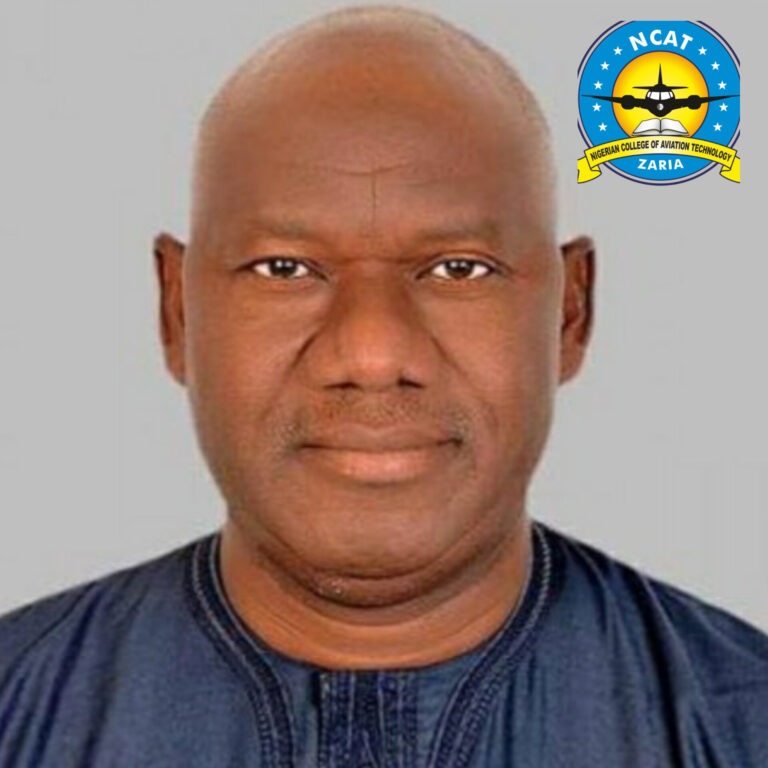“Most aviation professionals, especially pilots, must undergo simulator training every six months to renew their licenses,” the Rector stated. “We have already acquired the Boeing 737 simulator and are finalising plans to procure the ERJ-145, the second most commonly flown aircraft in Nigeria.”
BY ANTHONY OMOH
The Nigerian College of Aviation Technology (NCAT), Zaria, is intensifying efforts to modernise its training infrastructure with plans to acquire an ERJ-145 full flight simulator, while simultaneously expanding its accommodation capacity to cater to more students.
Rector of NCAT, Dr. Danjuma Ismail, made this known at the opening ceremony of the League of Airports and Aviation Correspondents (LAAC) training course held at the College in Zaria, where he outlined strategic initiatives aimed at repositioning the institution to meet the growing demands of Nigeria’s aviation industry. The one-week course sponsored by the Nigeria Civil Aviation Authority (NCAA) aims to increase knowledge capacity and reporting acumen in the industry.
According to him, the ERJ-145 simulator will complement the recently acquired Boeing 737 full flight simulator and is part of a broader plan to ensure pilots across different aircraft types can conduct recurrent training locally, in line with global safety requirements.
“Most aviation professionals, especially pilots, must undergo simulator training every six months to renew their licenses,” the Rector stated. “We have already acquired the Boeing 737 simulator and are finalising plans to procure the ERJ-145, the second most commonly flown aircraft in Nigeria.”
He stressed that these simulators will significantly reduce the need for local airlines to send their personnel abroad for mandatory training, thereby saving costs and foreign exchange.
Expanding student accommodation and training infrastructure
On infrastructure, Dr. Ismail revealed that the college has embarked on a critical expansion drive to boost student intake and enhance training efficiency. He explained that NCAT is currently constrained by limited hostel accommodation and key facilities, which hampers its ability to run multiple training courses simultaneously.
“Right now, we have only about 120 rooms. Construction has started to increase our hostel capacity. Once completed, it will enable us to admit and train more students across various aviation disciplines,” he noted.
He also acknowledged the existence of a training gap within some aviation fields and highlighted his administration’s resolve to close that gap through targeted programme development and infrastructure upgrades.
“When I assumed office, I noticed that some aviation professions were not being fully catered to in our training offerings. Our task now is to reposition the college to meet those needs locally,” Dr. Ismail added.
NCAT currently provides training to professionals from major aviation agencies including the Nigerian Civil Aviation Authority (NCAA), Nigerian Airspace Management Agency (NAMA), and Federal Airports Authority of Nigeria (FAAN).
The Rector emphasised that the college’s role remains pivotal in enhancing safety and operational standards within the industry.
“We are one of the core aviation training organisations in the country, and without our impact, most agencies would struggle to meet global standards,” he said.
Dr. Ismail praised the Federal Government for its continued investment in NCAT, stating that the support reflects a long-term vision of building capacity within Nigeria’s aviation sector and reducing reliance on foreign training.























